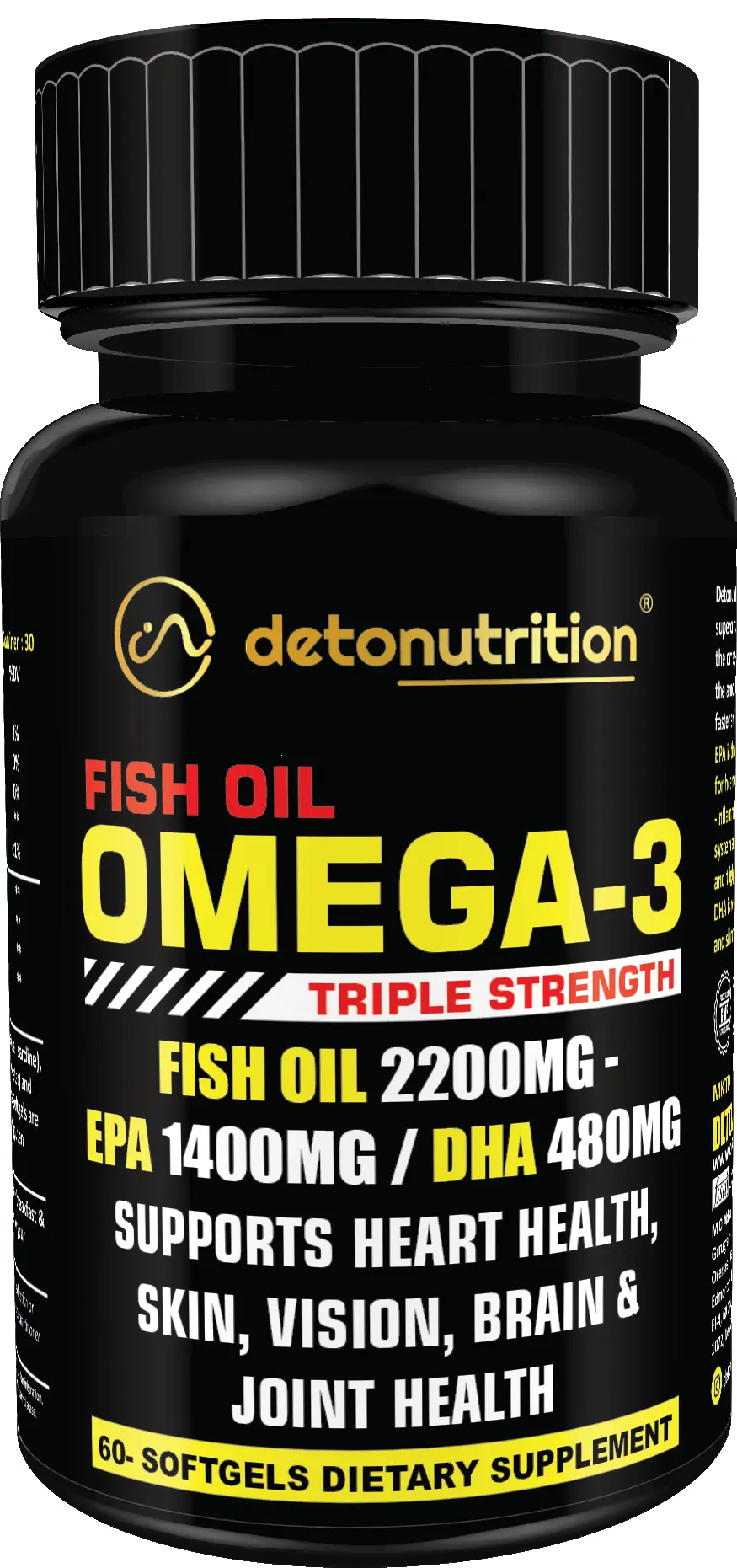Top 8 Ways To Speed Up Muscle Recovery
Did you know your muscles need 24-48 hours to recover after moderate exercise, while intense strength training may require 48-72 hours for complete repair. Proper muscle recovery is essential if you want to see real results from your workouts. However, many fitness enthusiasts focus solely on their workout intensity without giving equal attention to recovery strategies.
When you experience sore muscles after workout sessions, it's actually a sign that your body is adapting to your fitness routine. Check out this blog to known eight proven methods to speed up your muscle recovery, minimize soreness, and maximize your fitness gains.
Top 8 Strategies to Speed Up Your Muscle Recovery
1. Stay Hydrated to Support Muscle Repair
Proper hydration is one of the most overlooked aspects of exercise recovery, yet it plays a crucial role in repairing damaged muscle tissue. Dehydration can significantly decrease athletic performance. Understanding how water intake affects your muscles can make the difference between quick recovery and prolonged soreness. After intense exercise, your body needs adequate fluids to efficiently remove waste products and deliver essential nutrients to damaged muscle tissues. Many studies show that hydration is important for post-exercise recovery and muscle repair, as it helps the body remove waste products and transport nutrients to muscles undergoing repair. Dehydration following a workout substantially slows the protein synthesis process that rebuilds muscles. This means that without proper hydration, your body's ability to repair and strengthen muscle fibers becomes compromised, regardless of how well you eat or supplement.
Dehydration can additionally lead to common symptoms that hinder recovery:
- Muscle cramping
- Excessive fatigue
- Lightheadedness and dizziness
- Dry mouth
- Increased heart rate and breathing
2. Take the Right Post-Workout Nutrition
What you eat after training can drastically shorten your recovery time and enhance your fitness results. The post-exercise period is widely considered the most critical part of nutrient timing, offering a unique opportunity to maximize the rebuilding of damaged tissue and restore energy reserves. Exercise creates micro-tears in your muscle fibers that need repair, making protein consumption essential after workouts. For this, eat lean meats like chicken and turkey, fish like salmon and tuna, eggs, dairy products such as Greek yogurt and cottage cheese and plant-based options like tofu and lentils. Your muscles also use glycogen which is a stored carbohydrates as their primary fuel source during intense exercise. Restoring these depleted stores becomes crucial for recovery. Beneficial options of carbs include sweet potatoes, white rice, fruits like bananas and berries, whole grain bread and oatmeal. Don’t forget to add healthy fats for valuable anti-inflammatory benefits that can accelerate muscle recovery. Omega-3 fatty acids have been shown to reduce exercise-induced inflammation and muscle soreness. You can include fatty fish like salmon, mackerel, sardines, avocado, nuts and seeds, and olive oil into your post-workout nutrition plan.
3. Get Enough Sleep to Maximize Recovery
Sleep stands as one of the most powerful yet underutilized tools for muscle recovery. Beyond just feeling refreshed, what happens during those hours of slumber directly impacts how quickly your body rebuilds after intense training sessions. During deep sleep, your body enters an intensely anabolic state where several key recovery processes occur simultaneously. Most notably, your system secretes human growth hormone (HGH), which plays a crucial role in muscle repair and growth. This hormone stimulates protein synthesis, the process by which damaged muscle fibers are repaired and new muscle tissue is built.
Sleep also regulates other hormones essential for muscle development. Testosterone, which promotes muscle growth and repair, is primarily released during sleep. Conversely, poor sleep elevates cortisol levels, a stress hormone that drives catabolism by activating muscle protein degradation pathways. This hormonal imbalance creates a catabolic environment that makes muscle growth nearly impossible.
4. Stretch and Move for Active Recovery
Stretching serves as a cornerstone of effective muscle recovery. Active recovery through proper stretching and light movement can reduce recovery time by up to 50%. This approach not only helps your muscles bounce back faster but also prepares them for your next training session. Add static stretching that involves holding a specific position for 20-45 seconds without movement, gradually elongating the muscle to its full length. In contrast, dynamic stretching incorporates active, controlled movements that take joints through their complete range of motion. Timing also matters with these techniques. For effective post-workout recovery, focus on evidence-backed stretching approaches.
5. Use Foam Rolling and Massage Techniques
Foam rolling and massage techniques offer hands-on approaches to accelerate muscle recovery and alleviate post-workout soreness. These self-care methods have gained popularity among athletes and fitness enthusiasts for good reason. Research shows they can substantially reduce delayed onset muscle soreness and improve muscle performance after intense training. When you roll a muscle group across a foam roller, you apply direct pressure that stretches the tissue and generates friction between it and the roller. This mechanical pressure helps break up adhesions and muscle knots while simultaneously increasing blood flow to the area and increases oxygen delivery to muscles. Professional massage provides similar but often more targeted benefits than foam rolling. A post-workout massage increases circulation and blood flow, bringing oxygen to muscles while washing away metabolic byproducts. This process dramatically decreases post-workout pain and soreness by reducing muscle tension and improving soft tissue function.
6. Apply Heat and Cold Therapy
Heat and cold therapies represent two of the most accessible yet effective recovery methods available to athletes of all levels. These temperature-based treatments can significantly reduce recovery time when applied correctly, and unlike many other approaches, they require minimal equipment or expertise. The key to maximizing recovery lies in knowing precisely when to apply each therapy. Use cold for acute injuries accompanied by inflammation and swelling, while heat works best for muscle stiffness and chronic soreness. Cold therapy works by constricting blood vessels, which reduces blood flow to the applied area. This physiological response significantly decreases inflammation, swelling, and pain, particularly around joints and tendons.
Whereas the heat therapy dilates blood vessels and promotes blood flow to the treated area. This increased circulation helps flush out metabolic waste created during exercise while delivering nutrient-rich blood to affected muscles.
7. Support Recovery with Muscle Recovery Supplements
Strategic supplementation can enhance your recovery process when combined with proper nutrition and rest. Various muscle recovery supplements directly address the biochemical processes involved in muscle repair and growth.
-
EAAs
Essential amino acids (EAAs) form the foundation of effective supplement protocols for anyone experiencing muscle soreness after workouts. Unlike whole proteins, EAAs are absorbed in just 30 minutes compared to 3-4 hours for food-based proteins. This rapid absorption makes them ideal for immediate post-exercise recovery. Taking EAA Boosttt stimulates muscle protein synthesis more efficiently than combined essential and non-essential amino acids.
-
Creatine and omega-3s
Creatine is a naturally occurring compound that helps your muscles produce energy during intense exercise. It speeds up recovery time between intense workout sessions, reduces the amount of muscle lost during immobilization and helps you regain muscle more quickly once you return to training. Whereas, omega-3 fatty acids support recovery through their anti-inflammatory properties. These essential fats, found in fish, flaxseed, and walnuts, prevent excessive inflammation that might delay your recovery. Studies indicate omega-3 supplements may help increase muscle protein creation and reduce muscle loss during periods of inactivity.
-
Deto Armour and restore kit
For comprehensive recovery support, consider Deto Armour and Restore Kit. This specialized supplement combination includes herbal ingredients that work synergistically to restore your body's systems after intense training periods. Take detonutrition supplements for complete restoration, primarily through liver support, multi-mineral replenishment, and testosterone regulation. The kit specifically targets post-training recovery by helping maintain muscle tone and strength while providing essential PCT (Post Cycle Therapy) support.
8. Avoid Overtraining
Pushing your body too hard without adequate recovery can ruin your fitness goals. Your body communicates when it needs rest through various signals. Physical indicators of overtraining typically include persistent muscle pain and stiffness, unexplained weight loss or gain, decreased performance despite continued training and getting sick more frequently. Recognizing these warning signs early can prevent the development of overtraining syndrome. Strategically scheduling recovery periods helps maximize muscle repair without sacrificing progress.
Conclusion
Muscle recovery deserves as much attention as your actual workouts if you want to maximize fitness gains. Proper hydration, strategic post-workout nutrition, prioritizing 7-9 hours of quality sleep becomes adding recovery techniques like appropriate stretching and light movement between workouts, taking supplements and therapy will help you to recover your muscles properly.
FAQs
Q1. How important is nutrition for muscle recovery?
Nutrition plays a crucial role in muscle recovery. Consume 20-40g of protein and adequate carbohydrates within 30-60 minutes after exercise to maximize muscle protein synthesis and replenish energy stores. Including healthy fats can also help reduce inflammation.
Q2. Can sleep impact muscle recovery?
Quality sleep is essential for muscle recovery as it promotes the release of growth hormone and testosterone while reducing cortisol levels. Aim for 7-9 hours of sleep per night to optimize muscle repair and growth.
Q3.How can I tell if I'm overtraining?
Signs of overtraining include persistent muscle pain, unexplained weight changes, increased resting heart rate, decreased performance, frequent illness, irritability, poor sleep quality, and mental fatigue. If you experience these symptoms, it's crucial to incorporate more rest and recovery time into your routine.

We have a vision to take good care of your health and nutrition with products which are made from research and experience. Our team is technical as well as experienced so that we can deliver you the best products for your health and wellness.
Stay Fit, Stay Healthy And Stay Happy Always!
QUICK LINKS
CATEGORIES
Subscribe Us
Subscribe to Dr. Aaditya's Health Blog Email Newsletter
© Copyright - Detonutrition. All Right Reserved 2026.




